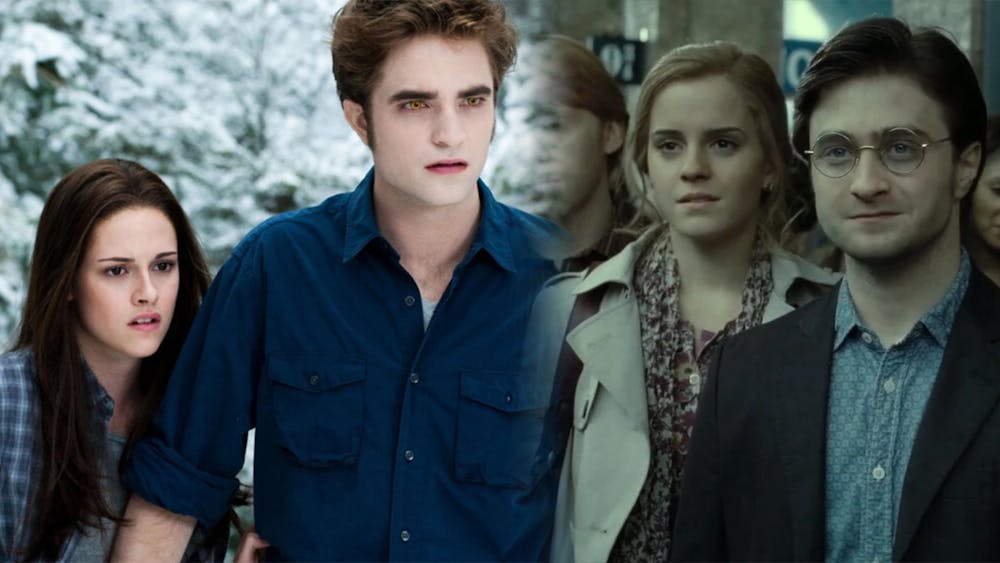If you thought television was a safe space from the reboot/remake/sequel bug of blockbuster filmmaking right now, you might want to check again.
On Wednesday, April 12, Warner Bros. Discovery announced that a new "Harry Potter" television series is in development for the also newly announced combined HBO Max and Discovery+ streaming service, Max. Exactly a week later on Wednesday, April 19, Lionsgate TV announced that a new "Twilight" TV series is also in development for an unannounced network/streaming service.
If you’re anything like me, your reaction to that news was probably to Google when the last "Harry Potter" or "Twilight" movie came out: it’s 2011 for "Harry Potter" and 2012 for "Twilight." So, what reason could there be to reboot two franchises which are barely over 10 years old? At this rate, we should start seeing television reboots of the whole first phase of the Marvel Cinematic Universe or yet another "Star Trek" reboot.
The answer is quite easy: money. While these television shows will certainly cost these studios an exorbitant amount of money (“The Lord of the Rings: The Rings Of Power,” which is probably the best point of comparison, cost about $462 million — without marketing — for the first season), the shows will attract a solid amount of viewership if only out of curiosity.
Of course, reboots aren’t new to television. While still relatively unique to the streaming age, reboots of film franchises done through television isn’t a new concept. Netflix’s “Cobra Kai” is probably the most shining example here (every season has at least a 90% Fresh rating or above on Rotten Tomatoes). Still, reboots of this kind and scale are relatively unprecedented.
A reboot can be best thought of as taking the framework of a given franchise, and creating a new story and cast of characters within said framework (2009’s “Star Trek,” for example). A remake is a direct “remaking” of a previous film (think Disney’s live-action versions of its animated films or some lauded American remake of a well-regarded foreign film) which generally hits all the same story beats and includes the same characters.
Let's give the studios the benefit of the doubt. Perhaps they aren’t just motivated by money. Maybe they want to update these franchises for a new generation (just think of all the advancements to special effects that have been made since “Twilight”’s CGI baby fiasco), and want the added benefit of being able to explore their universe more indepthly (after all, there’s only so much you can fit into a movie’s runtime).
Well, the first argument is easily dismissable for “Harry Potter” seeing as its effects have held up relatively well across the years. In the case of “Twilight,” the rough combined budget, unadjusted for inflation, for all five of the original films is about $385 million — about $100 million less than “The Rings of Power” which, despite its high price tag, has film-grade special effects. Unless Lionsgate TV is shelling out $100 million more, we probably won’t see a change there (keeping in consideration that TV show special effects are just generally worse).
In terms of universe exploration, they are both planned to be adaptations of their original book series’. “Harry Potter” also already has seven books, 11 films (including the “Fantastic Beasts” spinoffs), a video game and a broadway play. For “Twilight,” the original film franchise has a rough total runtime of about 600 minutes which could already be equivalent to 10 hour-long television episodes. We better hope for a second season to get to the new stuff.
The “Harry Potter” television series will also see JK Rowling serving as an executive producer, a serious misstep that has already sparked calls to boycott the show. Given Rowling’s history of transphobia and transphobic comments, her involvement is enough reason to ignore this reboot, full-stop.
If a “Harry Potter” reboot must exist, it would best be done without her. Firstly because of Rowling’s transphobia, but also because crafting a version of “Harry Potter” without Rowling could help to usher in a version of the popular franchise that fosters an inclusive environment where all fans are welcome. Although, even if this were to happen, Rowling would most likely still see some of the profits, so it’s largely a lose-lose situation.
It’s frustrating to continue to see studios pour millions of dollars into reboots of franchises without addressing and fixing the issues that could actually justify a reboot. Year after year, we see demonstrations of original concepts getting franchise-level attention — just look at “Squid Game” and “The White Lotus.” Even if you hate those shows, they will always be better than whatever new “Harry Potter,” “Twilight,” or whatever franchise something comes out in the next however many years, simply because they were attempting to do something original.
Get content from The Daily Lobo delivered to your inbox
John Scott is the editor-in-chief at the Daily Lobo. He can be reached at editorinchief@dailylobo.com or on Twitter @JohnSnott






